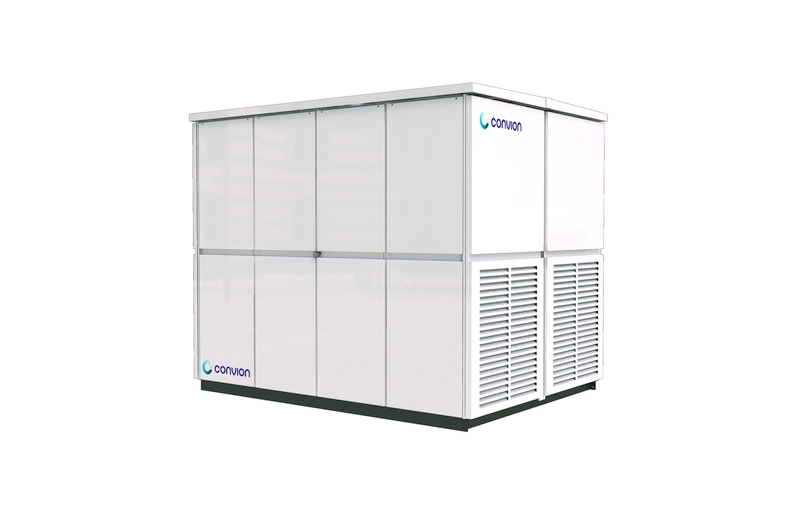Convion, a producer of fuel cell systems, is developing electrolysis for hydrogen production with superior properties and efficiency compared with competing technologies. The product is being developed in a separate project in parallel with the E-Fuel project run by Technical Research Centre of Finland (VTT). The project receives funding from Business Finland.
Convion is aiming to commercialise industrial-scale electrolysers. The technology company, which demerged from Wärtsilä in 2013, has launched a project to create a solid oxide electrolyser (SOE) that can be scaled up for industrial use.
The basic idea is to use fuel cells in reverse mode: the cells are normally used for electricity production but, in this solution, they are used to generate hydrogen through electrolysis.
“Normally, gas is fed into fuel cells to generate electricity. Now, we use the same technology but in reverse. We feed in steam, extract oxygen and hydrogen using electricity and capture the hydrogen to be used as raw material for renewable fuels,” Convion CEO Erkko Fontell explains.
Convion’s SOE solution is based on the Convion C60 fuel cell system. Thanks to the existing design, Convion will be able to make rapid progress. First experimental results are expected in 2022.
Superior efficiency
The bulk of the price of hydrogen is made up of energy costs, which means that the efficiency of the hydrogen-generating process is critical to creating a cost-effective solution. The solid oxide electrolysis system operating at high temperature has an efficiency of over 80%, which means it is up to 30% more efficient than, for example, PEM or alkaline electrolysis technologies.
“If the steam fed into the SOE system can be produced using waste heat, the electrical efficiency of the process can be increased to over 90%,” says Fontell.
The Convion system design and processing technology, verified and optimised at the fuel cell side, are very competitive. The secret is in the streamlined design: the number of components has been minimised, which improves the product’s reliability, makes it compact and allows for low-cost integration.
“When the system is working at 600–800°C, the streamlined design is definitely an asset. The process that is the core of our IPR is based on solutions with no moving parts,” Fontell illustrates.
Collaboration and synergy in the value chain
The Convion SOE project is independent and runs in parallel with the E-Fuel project by the VTT Technical Research Centre of Finland. However, the E-Fuel and Convion SOE projects have many commonalities, and one could not exist without the other. The Convion SOE project’s device concept is tested within the E-Fuel project and, most importantly, the projects share a common value chain.
“We have outstanding, pioneering fuel cell expertise in Finland, and this expertise is now an integral part of the industry value chain led by Neste. Convion uses cells made by the Finnish company Elcogen. We can commercialise a technology that will revolutionise the energy market across the entire value chain,” says Fontell.
The E-Fuel project is the first project in Neste’s Veturi partner programme. The Veturi research programme and its ecosystem aims to develop new solutions that reduce crude oil consumption.
Contacts:
Erkko Fontell
CEO, Co-Founder
erkko.fontell@convion.fi
+358 40 7544389
Tuomas Hakala
Co-founder
tuomas.hakala@convion.fi
+358 400 359 776
Suomenkielinen lehdistötiedote (press release in Finnish)


